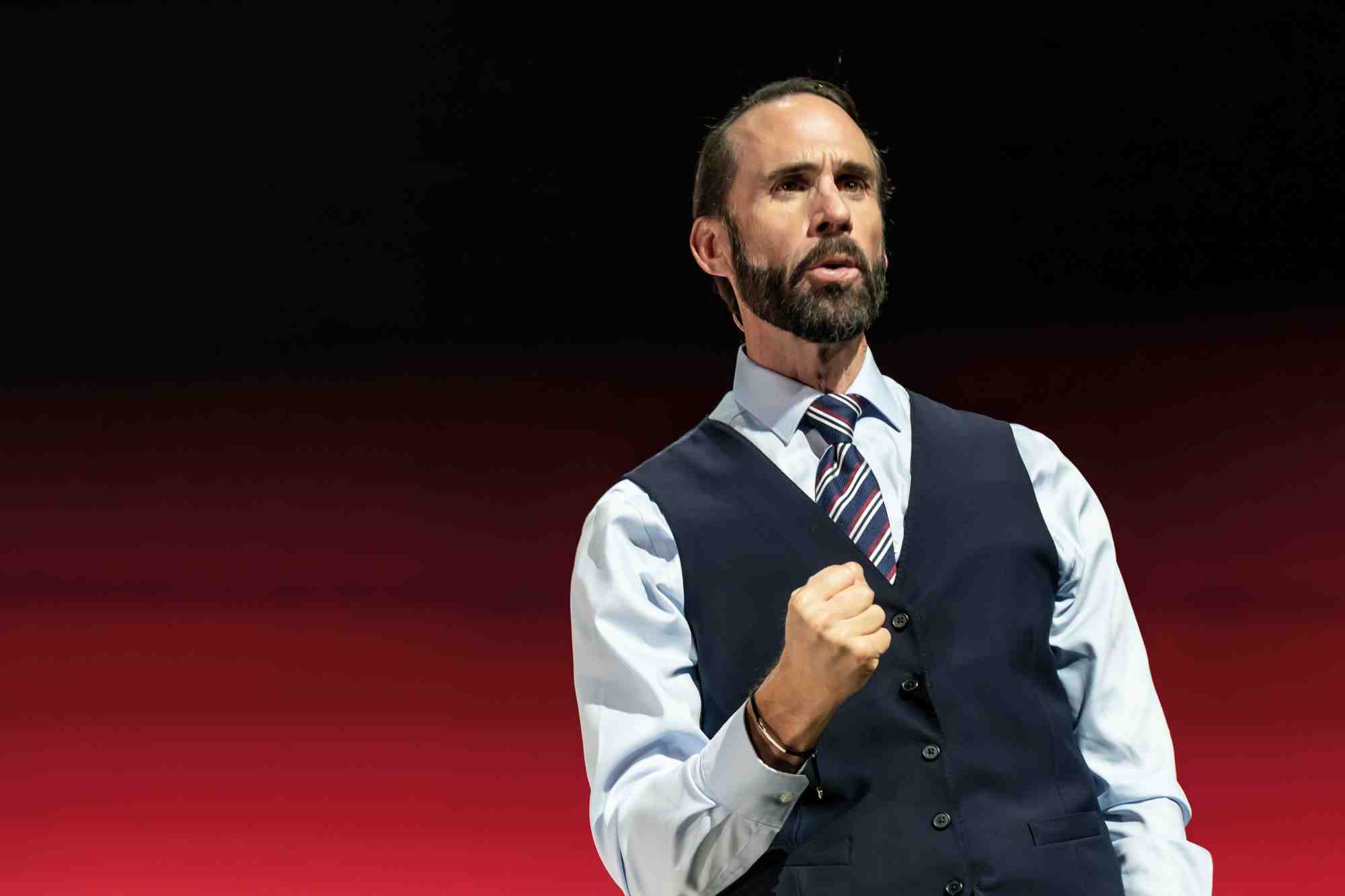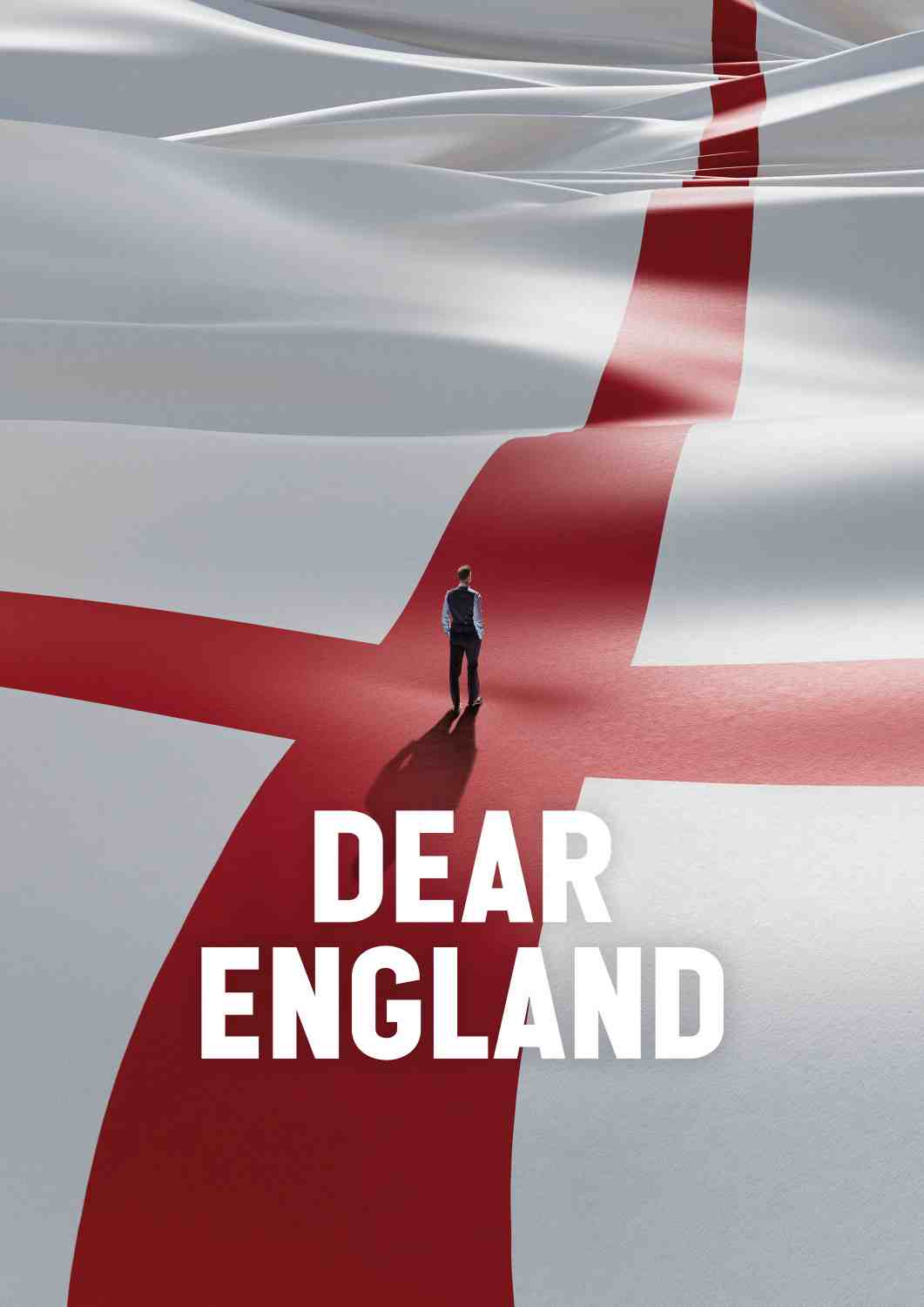Baroness Taylor reviews 'Dear England'
Cast of 'Dear England' | Image by Marc Brenner
Baroness Taylor of Stevenage
4 min read
No tub-thumping polemic, James Graham’s play is a light-of-touch, blisteringly funny and thoughtful celebration of England’s national sport
Affectionate, thoughtful and blisteringly funny at times, Dear England plots the journey the England team has taken under manager Gareth Southgate as it weaves its way through Brexit, Covid, torrid political times and a transition in the notion of patriotism.
For me the inextricable ties that bind football to our lives in this country were highlighted when my local team, Stevenage FC, took to the front line in providing support to older and frail residents during Covid.
More cynical number-crunching politicians tried to tell me that our local club only attracted a crowd of around 2,000 a week. But when we got to the Trophy Final, the first match to be played at the newly built Wembley stadium in 2007, over 25,000 Stevenage people made their way there to cheer on our team (and we did win!). So football matters whether we like it or not.
The cast play the team members with energy and distinction
The set of the play is a simple but iconic portrayal of those same Wembley arches. It’s used so cleverly throughout to show clips of totemic matches in the 2018 and 2022 World Cups and the 2021 Euros, plus footage from 1966, score lines and the ticking clock towards the next tournament.
There is a stand-out performance from Joseph Fiennes, whose genius is not just his uncanny resemblance to our England manager – at times you forget it’s not him on stage – but more importantly the way he portrays the character growing into and growing up with the role. We know, without the point being laboured, that he has unfinished business from his 1996 missed penalty. Then in a stand-out line from club psychologist Pippa Grange, played beautifully by Dervla Kirwan, we almost feel the penny drop as she says: “You already know how to win Gareth, you need to learn how to lose.”
 'Uncanny resemblance': Joseph Fiennes as Gareth Southgate | Image by Marc Brenner
'Uncanny resemblance': Joseph Fiennes as Gareth Southgate | Image by Marc Brenner
The cast play the team members with energy and distinction – from Harry Kane, who starts being hilariously laconic but grows during the play as his personal standing grows with the team, to the sympathetic treatment of Dele Alli, wrestling with personal demons, and Marcus Rashford, Raheem Sterling and Bukayo Saka as they face the reality of racism in football. There is no tub-thumping polemic here, its power is in the lightness of touch with which it highlights the reality of these issues faced by young men with exceptional talent.
The writer reserves tipping into caricature for politicians with laugh-out-loud (but still not cruel) portrayals of Theresa May, Liz Truss and Boris Johnson. And Fifa officials get the treatment I think many football fans might expect!
The first half ends with the nail-baiting penalty shoot out we all sat through in the Columbia-England game in the quarter final of the World Cup 2018. As England win the game and the curtain comes down there is a palpable sense of hope, as there was at the time, that the penalty shoot-out demon had been slayed.
 At the heart of Dear England is the idea that as our country has changed and become more diverse, our collective idea of what our country means has altered and expanded; our football changing alongside – a journey we are still travelling, but a journey of great hope.
At the heart of Dear England is the idea that as our country has changed and become more diverse, our collective idea of what our country means has altered and expanded; our football changing alongside – a journey we are still travelling, but a journey of great hope.
There are so many parallels to be drawn between our political world and football – but go and see this thoughtful celebration of England’s national sport and see whether you draw them too.
As Gareth Southgate said in the letter of this play’s title: ‘’I understand that on this island, we have a desire to protect our values and traditions – as we should – but that shouldn’t come at the expense of introspection and progress.”
Baroness Taylor of Stevenage is a Labour peer
Dear England
Written by: James Graham
Directed by: Rupert Goold
Venue: Prince Edward Theatre, London W1; until 13 January
